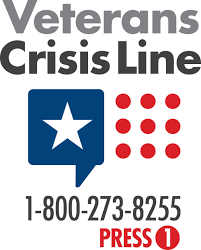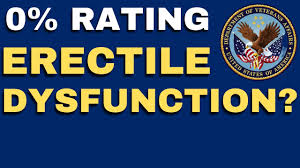The Importance of Mental Health Services for Veterans
For many veterans, the mental health challenges they face can be just as difficult – if not more so – than the physical challenges they encountered during their service. It is crucial that we prioritize mental health services for our veterans to ensure they receive the care and support they need.
Many veterans experience conditions such as post-traumatic stress disorder (PTSD), depression, anxiety, and substance abuse as a result of their military service. These conditions can have a profound impact on their daily lives, relationships, and overall well-being.
Fortunately, there are a variety of mental health services available specifically for veterans. Organizations such as the Department of Veterans Affairs (VA) offer a range of programs and resources to help veterans address their mental health needs.
Types of Mental Health Services for Veterans:
- Counseling and Therapy: Veterans can access individual counseling, group therapy sessions, and specialized programs tailored to their unique experiences.
- Medication Management: For those who require medication to manage their mental health conditions, healthcare providers can prescribe and monitor medications.
- Support Groups: Veterans can connect with peers who have had similar experiences through support groups that provide a sense of community and understanding.
- Crisis Intervention: Immediate assistance is available for veterans experiencing a mental health crisis through hotlines and emergency services.
It is important for veterans to know that seeking help for mental health issues is a sign of strength, not weakness. By accessing these services, veterans can improve their quality of life, enhance their relationships, and regain a sense of control over their mental well-being.
If you are a veteran in need of mental health support, do not hesitate to reach out to the VA or other organizations dedicated to serving those who have served our country. Remember: you are not alone, and help is available.
Enhancing Veteran Well-being: 9 Key Advantages of Tailored Mental Health Services
- Specialized care tailored to veterans’ unique experiences and challenges.
- Access to experienced mental health professionals who understand military culture.
- Availability of a variety of treatment options, including counseling, therapy, and medication management.
- Support groups that provide a sense of community and understanding among peers.
- Crisis intervention services for immediate assistance during mental health emergencies.
- Resources specifically designed to address conditions common among veterans, such as PTSD and depression.
- Opportunities for family involvement in the veteran’s mental health treatment plan.
- Assistance with navigating the complexities of the healthcare system to access needed services.
- Emphasis on promoting overall well-being and quality of life for veterans through mental health support.
Four Critical Challenges Facing Veterans’ Mental Health Services: Access, Delays, Stigma, and Cultural Transition
- Limited access to specialized mental health providers for veterans in certain geographical areas
- Long wait times for appointments and services within the Department of Veterans Affairs (VA)
- Stigma surrounding mental health issues may prevent some veterans from seeking help
- Challenges in transitioning from military culture to civilian mental health care settings
Specialized care tailored to veterans’ unique experiences and challenges.
Veterans mental health services offer a crucial pro of providing specialized care specifically tailored to veterans’ unique experiences and challenges. By addressing the distinct needs that arise from military service, these services can offer targeted support that takes into account the traumas, stressors, and transitions that veterans may have encountered during their time in the armed forces. This personalized approach helps veterans feel understood, validated, and supported in a way that generic mental health services may not be able to provide, ultimately leading to more effective treatment outcomes and improved overall well-being for those who have served our country.
Access to experienced mental health professionals who understand military culture.
One significant benefit of veterans mental health services is the access to experienced mental health professionals who have a deep understanding of military culture. These professionals are uniquely equipped to provide tailored support and guidance to veterans, taking into account their military background, experiences, and challenges. By working with mental health professionals who are familiar with military culture, veterans can feel more understood, validated, and supported in their journey towards improved mental well-being.
Availability of a variety of treatment options, including counseling, therapy, and medication management.
One significant advantage of veterans mental health services is the availability of a diverse range of treatment options to address their unique needs. Veterans can benefit from counseling, therapy sessions, and medication management tailored to their specific mental health conditions. This variety of treatment options ensures that veterans have access to comprehensive care that can effectively support their emotional well-being and recovery journey.
Support groups that provide a sense of community and understanding among peers.
Support groups play a crucial role in veterans’ mental health services by offering a safe space where individuals can connect with peers who share similar experiences. These groups provide a sense of community and understanding that can be incredibly comforting and empowering for veterans facing mental health challenges. By fostering a supportive environment where veterans can openly share their thoughts and feelings, support groups help reduce feelings of isolation and stigma, ultimately promoting healing and resilience among participants.
Crisis intervention services for immediate assistance during mental health emergencies.
Crisis intervention services for immediate assistance during mental health emergencies are a crucial pro of veterans mental health services. In times of crisis, having access to specialized support can make a life-saving difference for veterans experiencing severe mental health challenges. These services provide rapid response and intervention, ensuring that veterans in distress receive the urgent help and care they need to navigate through difficult moments and prevent potential harm. By offering timely assistance during emergencies, crisis intervention services play a vital role in supporting the well-being and safety of veterans dealing with acute mental health issues.
Resources specifically designed to address conditions common among veterans, such as PTSD and depression.
One significant advantage of veterans mental health services is the availability of resources specifically tailored to address conditions commonly experienced by veterans, such as post-traumatic stress disorder (PTSD) and depression. These specialized resources are designed to cater to the unique needs and challenges faced by veterans, offering targeted support and treatment strategies to help them effectively manage and overcome these mental health conditions. By providing tailored interventions for conditions like PTSD and depression, veterans mental health services play a crucial role in supporting the well-being and recovery of those who have served our country.
Opportunities for family involvement in the veteran’s mental health treatment plan.
One significant benefit of veterans mental health services is the opportunities for family involvement in the veteran’s treatment plan. By including family members in the treatment process, veterans can receive additional support and understanding from their loved ones. Family involvement can help improve communication, strengthen relationships, and provide a network of support beyond the healthcare setting. This collaborative approach not only benefits the veteran but also enhances the overall well-being of the entire family unit, fostering a sense of unity and resilience in facing mental health challenges together.
Assistance with navigating the complexities of the healthcare system to access needed services.
Veterans mental health services offer a crucial benefit by providing assistance to veterans in navigating the complexities of the healthcare system to access the services they need. This support helps veterans overcome barriers and challenges they may face in understanding and accessing available resources, ensuring that they receive the appropriate care and support for their mental health needs. By guiding veterans through the healthcare system, these services empower them to navigate the process more effectively, ultimately improving their overall well-being and quality of life.
Emphasis on promoting overall well-being and quality of life for veterans through mental health support.
One significant advantage of veterans mental health services is the emphasis on promoting overall well-being and improving the quality of life for veterans through tailored mental health support. By addressing mental health concerns, these services aim to enhance veterans’ emotional resilience, coping mechanisms, and sense of purpose. Through specialized programs and resources, veterans can receive the necessary care to navigate challenges, strengthen relationships, and regain a sense of control over their mental well-being. Prioritizing mental health not only supports veterans in overcoming obstacles but also empowers them to lead fulfilling and meaningful lives post-service.
Limited access to specialized mental health providers for veterans in certain geographical areas
One significant challenge in veterans mental health services is the limited access to specialized mental health providers in certain geographical areas. Many veterans residing in rural or remote locations may face difficulty in accessing mental health professionals who have experience and expertise in treating military-related mental health issues. This lack of specialized care can result in delayed treatment, inadequate support, and increased barriers to recovery for veterans struggling with conditions such as PTSD, depression, and anxiety. Addressing this disparity in mental health service availability is crucial to ensure that all veterans receive the comprehensive care they deserve, regardless of their geographic location.
Long wait times for appointments and services within the Department of Veterans Affairs (VA)
One significant drawback of veterans mental health services is the long wait times for appointments and services within the Department of Veterans Affairs (VA). Many veterans face frustrating delays in accessing the care they need, which can exacerbate their mental health conditions and lead to feelings of neglect or abandonment. The extended waiting periods for appointments can be detrimental to veterans who require timely intervention and support. Addressing this issue is crucial to ensuring that veterans receive prompt and effective mental health services to improve their well-being and quality of life.
Stigma surrounding mental health issues may prevent some veterans from seeking help
The stigma surrounding mental health issues can serve as a significant barrier for some veterans in seeking the help they need. Fear of being judged, perceived as weak, or facing potential repercussions can deter veterans from reaching out for mental health services. This stigma may lead to feelings of shame or isolation, preventing individuals from accessing vital support and treatment. Addressing and breaking down the stigma associated with mental health within the veteran community is essential to ensuring that all veterans feel comfortable seeking the care they deserve.
Challenges in transitioning from military culture to civilian mental health care settings
One significant challenge in veterans’ mental health services is the difficulty many face in transitioning from the structured and familiar military culture to civilian mental health care settings. The military environment often emphasizes toughness, self-reliance, and stoicism, which can create barriers for veterans seeking help for mental health issues in civilian settings where vulnerability and emotional expression are encouraged. This cultural disconnect can lead to feelings of alienation, reluctance to seek treatment, and challenges in effectively communicating their needs and experiences to mental health professionals. As a result, it is essential for mental health providers to be trained in understanding and addressing the unique cultural dynamics of military service to better support veterans in their transition to civilian care settings.




